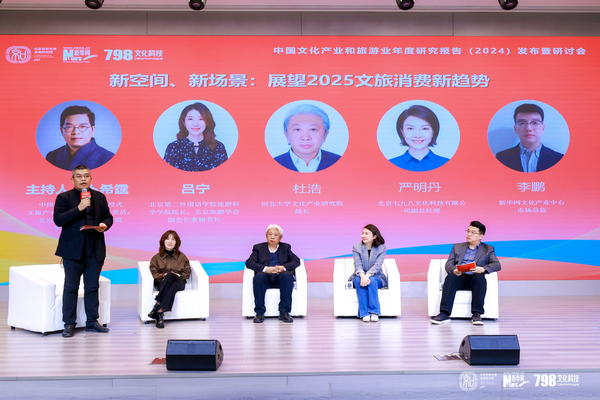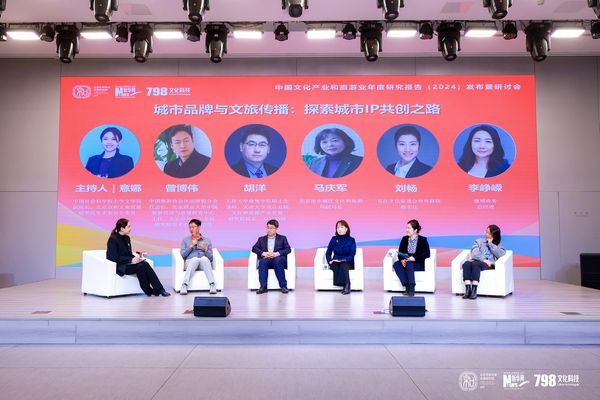

According to the report, traditional cultural content production in press, film and TV will undergo an accelerated revolution in 2025 owing to the impact of short videos and artificial intelligence.
The report also predicts that emerging technologies such as AIGC (artificial intelligence-generated content) will be applied on a larger scale in the cultural and tourism industries, inspiring a trend of investing in digital infrastructure in these industries.
In addition, the new year, according to the report, will see social media platforms play a more significant role in encouraging cultural and tourism consumption, and consumers will place greater value on the quality and emotional value of the products and services they pay for.
China will likely see an uptick in the arrivals of international tourists in 2025, with the number of inbound tourists surpassing that of 2019, thanks to the country's growing allure and visa facilitation policies, the report said.
Event participants agreed that the publication of the report will not only serve as a crucial reference for government decision-making and corporate strategic planning but also ignite enthusiasm for innovation in the cultural and tourism industries.
The launch event also featured two panel discussions among industry insiders: one on the new consumption trends in the cultural and tourism industries and the other on how cities conduct brand marketing to attract tourists.
Liu Ning, dean of the School of Tourism Sciences at the Beijing International Studies University, said that in the future, Chinese people would like to travel more like locals, immersing themselves in the local lifestyle rather than merely sightseeing.
Tourism will be more integrated with other business formats, such as concerts and sports events, she predicted.
Yan Mingdan, vice-general manager of Beijing 798 Culture Technology Co Ltd, said that the 798 Art District has become the second-most visited place among inbound tourists after the Forbidden City in recent years. As the company is speeding up efforts to build 798 into a global art destination, more study tour programs will be developed and presented in the new year within the art district to cater to the growing market demand.

Zeng Bowei, deputy director of China Leisure Association, said that to build itself into a sought-after tourist destination, a city needs to distinguish itself from others by focusing on its unique cultural and tourism resources. The local government should also work closely with enterprises to provide quality tourism products and services.
Panelists likened building a good tourist destination brand to planting trees, both of which take time and patience.
Li Zhengzhong, an executive from the popular micro-blogging platform Sina Weibo, argued that social media is probably the easiest way for local governments to gain consumer insights and understand their needs.
She added that cities, especially mid- and small-sized ones, should make good use of various social media platforms, which are like microphones for them, to expand their audience reach and capture the attention of new visitors.